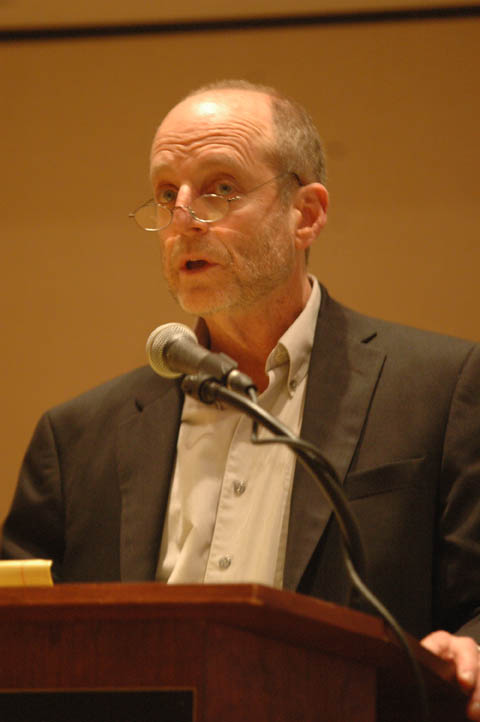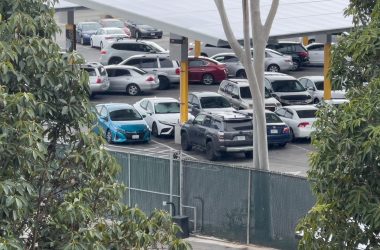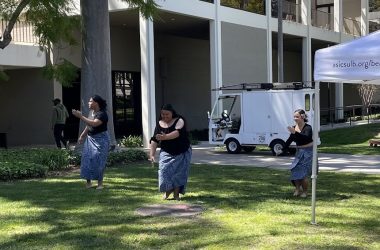The current economic situation seems grim, and that is what speakers at yesterday afternoon’s Critical Perspectives for Economy panel made it sound like.
Approximately 70 people showed up to listen as four speakers shared their views on economics and recession at the University Student Union Ballrooms. The speakers went through the reasons the economic situation has ended up where it is now and tried to find a way to solve the problem.
“A family that makes $100,000 a year has a debt of $135,000,” said Dr. Fadhel Kaboub, a professor at Denison University. “You can’t sustain this liquidity illusion forever, that there is always money around, that there’s always new ways of lending and spending.”
James Devine, a professor at Loyola Marymount University, said, “I’ve written a bunch of articles on the Great Depression in the 1930s. I do not see the future repeating that experience, even though there is a lot of similarities.”
Dennis Rockway, the director of advocacy and training at the L.A. Legal Aid Foundation, said, “Long Beach is noted for many things: It’s a major port city, university city, beach city, convention city, beautiful city, stressful city; it has been cited as the most diverse city in the United States.”
He added that the current economic crisis is only contributing to past issues in the city.
“The truth is, things were not so rosy in Long Beach even before the current recession — though it is true that it made things worse — and, as usual, the hardest hit have been the poor,” Rockway said. “With the shortage of decent-paying jobs, it’s hard for poor people in Long Beach to get by.”
He also said that domestic violence and evictions have increased in Long Beach. Salvation Army has closed its food pantry, and the homeless population is up to 5,000 after declining for a couple of years, he said.
Nancy Matthews, a Cal State Long Beach lecturer and student mentor, was at the panel to discuss the economy from an educational perspective.
“The mission of the [California State University] is to provide a high quality, affordable education with the emphasis on scholarship and preparing students for global economy,” she said. “That is the core of our educational mission.”
Matthews also said the CSU system has had a $584 million reduction in state funding and deeper cuts are expected in 2010. About 44,000 students were declined admission to CSU campuses for the fall semester.
President F. King Alexander said Mississippi puts more money toward higher education even though it is a poorer state than California.
Earlier that day, the California Faculty Association gathered pledge cards at the Friendship Walk in support of Assembly Bill 656. The bill proposes taking a 9.9 percent tax on all oil and natural gas extracted statewide, with 60 percent of the funds directed toward the CSU. Alaska already has a similar program that taxes 25 percent.
California Assembly Majority Leader Alberto Torrico is collecting 100,000 pledge cards from the 23 CSU campuses for the next 100 days to show the committee holding the bill that there is public support for it. The pledge cards were also passed to the people who attended the economy panel.
“Activism brings change,” Rockway said. “Now there’s a great opportunity in front of us. Let’s go for it.”




